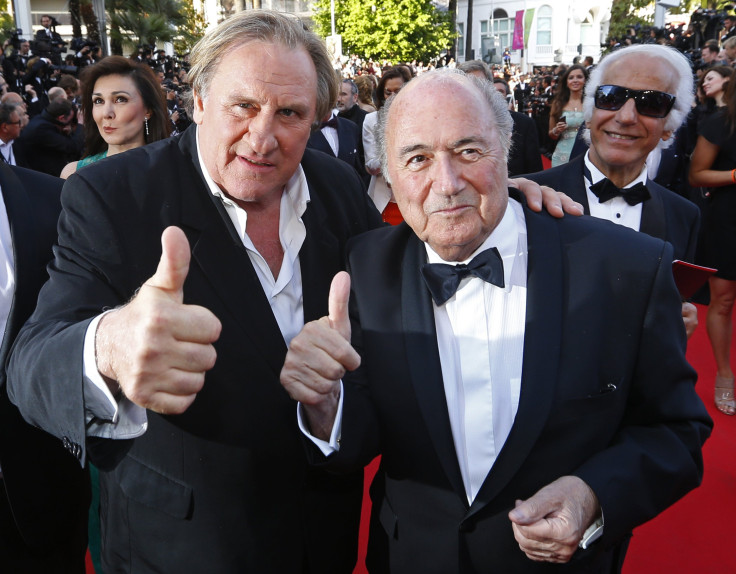'United Passions', FIFA-Backed Movie, Shown Red Card By Critics And Fans

Amid the massive corruption scandal engulfing FIFA, a movie backed by the soccer’s international governing body tried to win hearts of U.S. movie-goers this weekend but failed miserably. The film, titled “United Passions,” hit U.S. theaters Friday in 10 locations, but was mostly greeted by empty chairs.
“United Passions,” starring Gerard Depardieu, Sam Neill and Tim Roth, was funded by FIFA and distributed in the U.S. by Screen Media Films. The movie collected a measly $634 in ticket sales on Friday and Saturday, with Sunday's sale expected to bring the total to $1,000, Bloomberg reported, citing people familiar with the matter.
Written and directed by Frederic Auburtin, “United Passions” tells the story of the World Cup and the rise of three FIFA presidents: Jules Rimet (Depardieu), who created the tournament; Joao Havelange (Neill), who became the FIFA chief in the 1970s; and Sepp Blatter (Roth), who recently resigned from his post after being elected as the body's president for a fifth term.
Here's the United Passions trailer. https://t.co/hFFlakT1Yo (The truth is clearly stranger than this fiction).
— sportingintelligence (@sportingintel) June 7, 2015FIFA, which had invested $27 million in the movie, collected $178,000 in ticket sales in the past year, Bloomberg reported, adding that it was initially released at the Cannes Film Festival in May 2014. In addition to the U.S., the FIFA-backed film also hit theaters in Serbia, Italy, France, Portugal, Hungary and India, according to Imdb.com.
Meanwhile, film critics have panned the movie, with the Hollywood Reporter calling it “a cringeworthy, self-aggrandizing affair that mainly benefits from its unintentional camp value.”
The New York Times reviewed “United Passions” as “one of the most unwatchable films in recent memory,” while the Guardian evaluated the movie as “two hours of wretched, self-congratulatory Fifa history.”
The movie “comes across as a squirm-inducing heap of propaganda at its most self-congratulatory,” Michael Rechtshaffen wrote in the Los Angeles Times. “United Passions, with its clashing, production partner-mandated Europudding of accents, fails to find a unifying voice.”
© Copyright IBTimes 2025. All rights reserved.






















